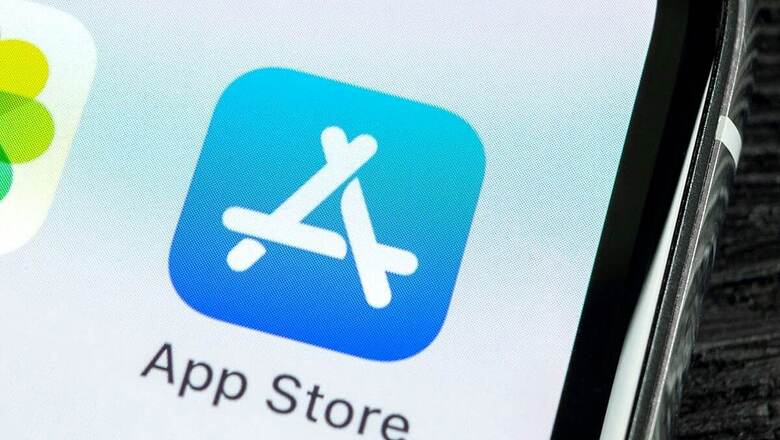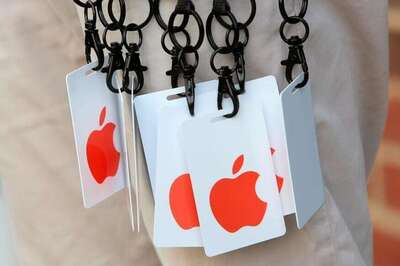
views
All things considered, the Apple-Epic lawsuit may well be remembered as one where the iPhone maker further establishes itself as the flagbearer of empathy in Big Tech. On the other hand, if its looming verdict swings the other way, Apple will likely trudge down the same lane as its fellow tech behemoths — the murky world of anti-competitive lawsuits and Congressional hearings that are really yet to have a telling impact. Irrespective of the outcome, Apple played its developer pitch with quiet composure at WWDC 2021 – without going out of its way, but ensuring that it does not come across as tone-deaf. The effect can be a telling point in Apple’s journey to establish claim on a we-are-on-your-side public image that it hopes to maintain.
Apple already has an edge on developer relations
To begin with, if there is one company that still has a salvageable public image in terms of how much they care, it is Apple. From its battle against targeted user tracking, where its reputation was only amped up by Facebook’s efforts to bring it down, Apple is largely perceived by many users as being a pro-customer company. Even among many developers, Apple has the friendly-mentor image — independent developers have often credited Apple with helping fuel their growth, and at times, the smallest developers have found Apple to be massively helpful.
In a Protocol newsletter, Ben Bajarin, the CEO of Creative Strategies, claims that most small developers are “pretty happy”. In November 2020, Apple revised its App Store strategy to establish a new ‘Small Business’ programme. As part of this revision, it reduced the revenue split to half for developers that earn less than $1 million on its App Store — down to 15 percent now. It also went on to claim that the “vast majority” of close to 30 million app developers using the App Store to ferry their products would benefit from this.
The move came before Microsoft’s recent revenue split reduction from 30 percent to 12 percent for game developers, and before US District Judge for Northern California, Yvonne Gonzalez Rogers, gave Apple CEO Tim Cook a resounding round of targeted questioning.
It’s tried to further add to this edge
Irrespective of Judge Rogers’ ruling, though, at WWDC 2021, Apple issued some interesting data (and announcements). The data included developer payout of $230 billion in its almost-13-year history, and over 600 million weekly average users. The feature announcement included a new Events page in the App Store, which would advertise upcoming in-app events to attract more users. In a way, this was Apple creating another avenue for developers to attract more users to its services, which is being made possible due to the App Store’s might.
In effect, it is this IP that CEO Cook spoke of at the hearing. More importantly, it is this that appears to be Apple’s chosen route – making plenty of use cases and proof to justify its oft criticised “walled garden” approach. The user numbers should justify developers paying Apple for giving the App Store platform, the Events page should justify their need for the revenue split. Last month, an official Apple release on the App Store helping prevent $1.5 billion worth losses served a potentially similar purpose as well. With the release coming right in the middle of its big debate around why it doesn’t allow third party download sources, the move was hardly uncalculated.
Voices of dissent have been around
As Epic took Apple to court by stating that the 30 percent revenue share that it charges is disproportionate, the heavyweight hearings have revealed interesting information. During the final moments of the Apple v Epic court hiring, Cook faced Rogers, and boldly stated that the reason behind the App Store’s revenue share being justified was the investment that the company has made to develop the Store as its intellectual property. However, Rogers’ pointed line of questioning brought up points that large developers such as Epic itself have been trying to make — is the revenue split justified solely based on that?
Rogers further underlined that the scale of success for game developers warrants Apple to not hold its high ground, and instead mend its fractious relationship with big developers on a more microscopic scale. Similar complaints were filed in a lawsuit by Cydia, which claimed that Apple “quashes competition” with its App Store policies. Margrethe Vestager, the antitrust regulator of the European Union, sanctioned a fine on Apple on similar grounds, citing Spotify’s 2019 claims that accused Apple of the same.
Given the scale of complaints received by Apple around the App Store, it is hard to ignore that on a broader scale, WWDC 2021 was the perfect opportunity for Apple to shed more light on how it aims to go forward on its equations with the overall developer community. Its subtle message, for the time being, is that it really sees its revenue share as fair, and Apple now wants to back up its claims on a more urgent basis.
Would any of this really matter to Apple?
While many may argue that Apple is too big to be pushed off its position as a result of its lawsuits against Epic Games, things may not be so black or white. With increasing scrutiny around anti-competitive practices on Big Tech, the time is even more important for Apple to maintain its public image. Perhaps Apple recognises this too — otherwise, it was very unlike Apple to have Craig Federighi throw Macs under the bus by defending its tight grip on the App Store ecosystem. Clearly, it is of enough importance to Apple.
Whether Apple’s developer and App Store announcements at WWDC 2021 can be deemed ‘enough’ depends on which boat you’re sailing on. The upcoming verdict day for its Epic court battle may or may not be quite as kind.
Read all the Latest News, Breaking News and Coronavirus News here.


















Comments
0 comment